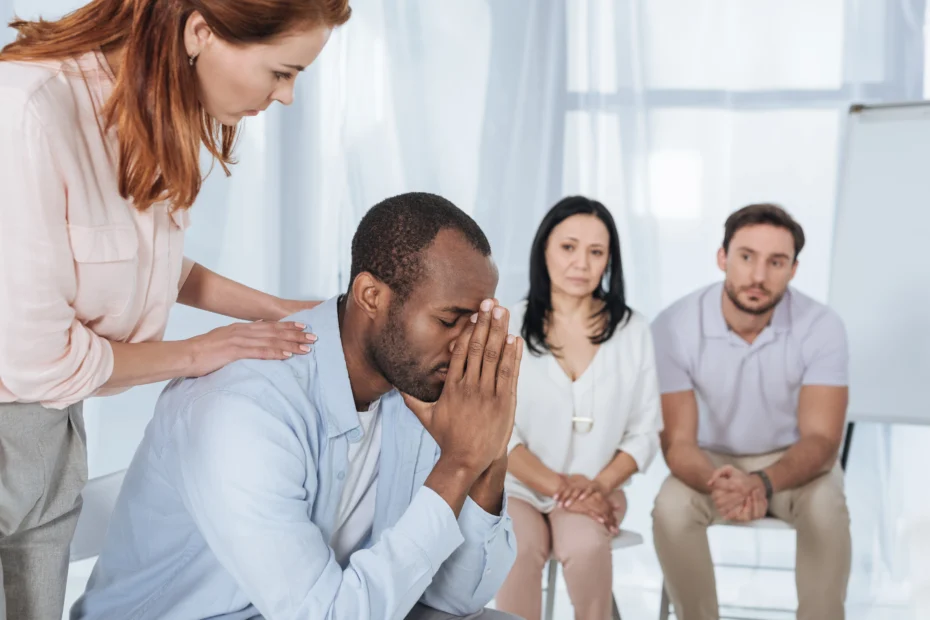Substance use disorder is a serious medical condition, and overdoses are one of the most dangerous complications that can arise as a result. Seeking addiction therapy after an overdose can help individuals who are struggling with addiction get to the root cause of their substance use. It also allows them to learn new coping skills to mitigate triggers that may lead to relapse or another overdose.
Recent statistics show that in a twelve month period ending on August 31, 2022, an estimated number of 107,500 people died from an overdose across the country. That is a rate of 294 deaths per day that were contributed to drug overdoses.
Knowing how to spot an overdose is extremely important in our world today, and it may just save a loved one’s, or even your own life. In this blog post we will discuss what an overdose is, as well as what the benefits of addiction therapy are after an overdose.
What is an Overdose?
An overdose can occur when a person consumes a toxic amount of drugs or alcohol in a short amount of time. Overdoses can involve any type of substance, including both illicit drugs like heroin, cocaine, and fentanyl, as well as prescription medications such as opioids.
An overdose occurs when the body’s ability to metabolize and eliminate the drug becomes compromised. This can then cause rapid changes in the body, brain, heart and other vital organs. Ultimately, if an overdose is not attended to by medical professionals right away, it can cause the body to shut down, resulting in death or permanent brain and/or body damage.
Signs of an Overdose
While the signs of overdose range depending on the specific substance that was used, there are some general signs to be aware of, so you know when to call for help. The most common signs of an overdose include vomiting, nausea, confusion, unconsciousness, diarrhea, pain in the body, poor coordination, drowsiness, agitation, paranoia, irregular breathing and seizures. If medical attention is not sought immediately, an overdose can quickly turn into a coma or even death.
Every second counts during an overdose. If you or someone you know appears to be experiencing an overdose, it is important to seek help immediately. Call 911 or contact your local poison control center for help right away.
Learning Coping Skills in Addiction Therapy Sessions
Seeking the assistance of an outpatient services program is paramount after experiencing an overdose. There are a number of different types of addiction therapy techniques that are available to individuals struggling with a substance use disorder.
Two of the most common addiction therapy techniques are individual and group therapy. During these sessions, people who have experienced an overdose can learn how to identify triggers and develop strategies for avoiding them or managing them if they occur.
These strategies may include relaxation techniques such as meditation, deep breathing, journaling, or attending support groups. Learning how to recognize patterns of behavior that led to the overdose can also be beneficial in helping patients avoid similar situations in the future.
Gaining Insight into Addiction
Addiction therapy sessions are an ideal opportunity for individuals struggling with addiction to gain insight into their own thought processes and behavior patterns surrounding their substance use disorder. This insight can be invaluable in helping them understand why they feel compelled to use substances even when they know it is not healthy for them.
It also helps them identify the certain triggers that make them more likely to relapse. Addiction therapy allows patients to identify potential areas of vulnerability that may need further attention to support long-term success and recovery.
Receiving Support from Others Experiencing Similar Struggles
Individuals who have experienced an overdose often find solace in knowing that they are not alone in their struggles with addiction and other related mental health issues. Through group therapy sessions, these individuals gain access to peers who understand what they are going through and offer support during difficult times. This type of peer-to-peer support is invaluable in providing comfort and acceptance during recovery from an overdose.
Experience Inner Healing with Addiction Therapy at Encore Outpatient Services
Addiction therapy plays a critical role following an overdose by providing individuals with coping skills, allowing them to gain insight into their addiction, and offering them peer-to-peer support throughout the recovery process.
With the help of both individual and group therapy, these sessions can provide a safe space for those struggling with substance use disorder. They facilitate an environment where individuals can share their experiences without judgment, receive validation from others going through similar struggles, and learn valuable tools that will help them stay sober long term.
Ultimately, these addiction therapy interventions will help protect against future overdoses by mitigating triggers that could lead to relapse.
At Encore Outpatient Services, we believe that treatment is not a one-size-fits-all approach. Therapy plays a crucial role as the foundation of our personalized treatment model.
Our mission is to understand all aspects of the individual, their environment and their story. When you’re searching for addiction therapy in Arlington, VA you can depend on the specialists at Encore Outpatient Services. To learn more about our therapy services, check out our website or contact us directly here.
